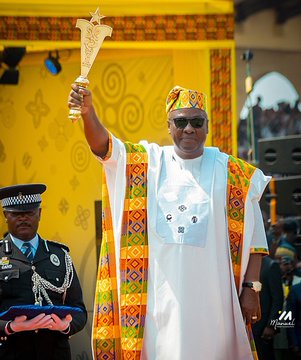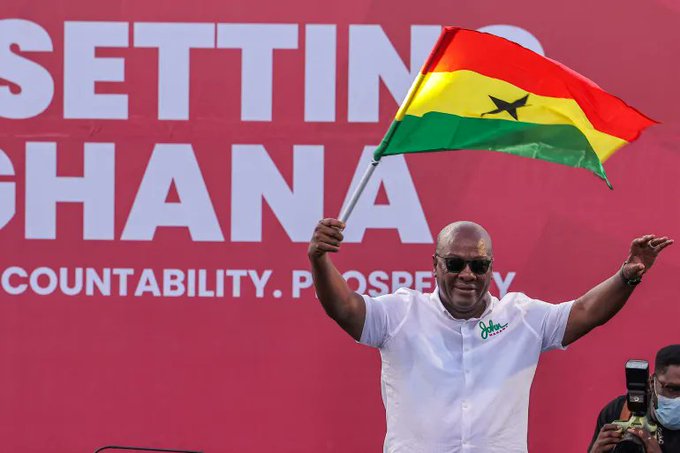NAIROBI, Kenya- Ghana’s newly sworn-in President John Mahama is wasting no time in making bold financial decisions.
In a recent email announcement, Mahama revealed that his administration has scrapped seven ministries, trimming the government structure from 30 to 23 ministries as part of an austerity plan tied to the International Monetary Fund (IMF) loan agreement.
FACT: Ghana’s President John Dramani Mahama has reduced the number of the country’s Ministries from 30 to 23, making Ghana one of the African countries with the lowest number of ministers.
This decision aligns with Ghana’s commitment to the IMF’s $3 billion bailout program, a deal originally struck in 2023 to stabilize the nation’s struggling economy.
But will fewer ministries translate to real savings—or is this just political window dressing?
IMF Loan and Economic Realities
Let’s rewind a bit. Ghana has been navigating financial turbulence since 2022, battling rising inflation and a weakened currency.
In a bid to regain stability, the country sought an IMF bailout, eventually securing a three-year, $3 billion loan in May 2023.
But, as with most IMF-backed programs, there’s always a catch. One of the key conditions? A leaner government to cut public spending.
During his campaign, Mahama acknowledged the IMF loan as a crucial tool for recovery but hinted at possible adjustments.
“When I talk about renegotiation, I don’t mean we’re jettisoning the program,” he clarified earlier this month. “We’re bound by it, but within the program, it should be possible to make some adjustments to suit reality.”
Mahama is sticking with the loan but wants a little wiggle room to tailor policies to Ghana’s evolving economic needs.
For those who’ve followed Ghana’s political landscape, Mahama’s return to power isn’t just about economic recovery—it’s a full-circle moment.
Ghana’s former President John Dramani Mahama has won the country’s presidential election aje.io/cuwtzd
The 65-year-old leader, who previously served as president from 2012 to 2017, has held almost every major political role in the country, from member of parliament to vice president, and then president.
His presidency initially began under tragic circumstances—Mahama was vice president when his predecessor, John Atta Mills, passed away unexpectedly in 2012. Within hours, he was sworn in as Ghana’s new leader.
Now, much like Donald Trump’s return to the U.S. political arena, Mahama is back with unfinished business, aiming to restore economic stability while navigating the constraints of the IMF deal.
With fewer ministries, tighter fiscal policies, and a president determined to reshape Ghana’s economic trajectory, the coming months will be pivotal.





